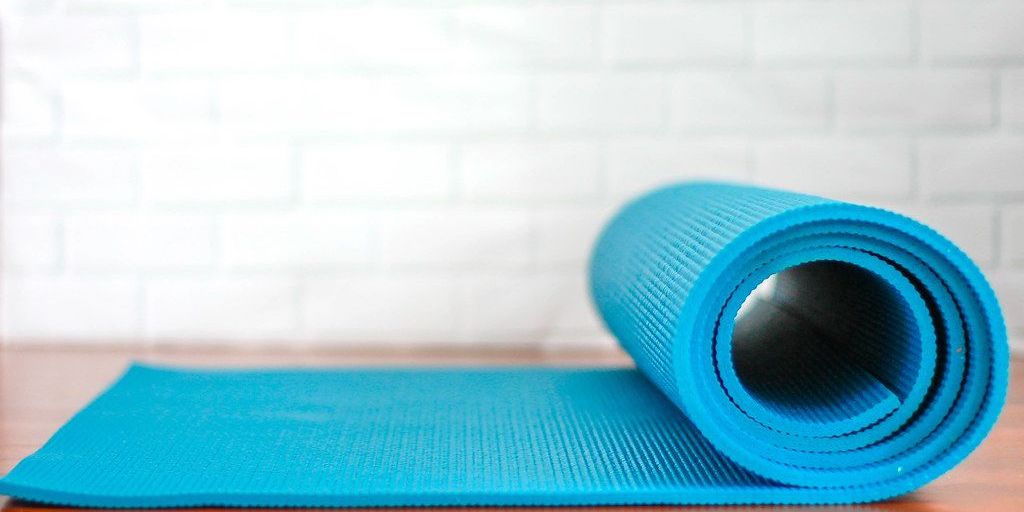
Choosing the Best Hot Yoga Mat for Your Practice
Choosing the right hot yoga mat is pivotal to enhancing your practice, ensuring comfort, and maintaining safety. Hot yoga, with its intense heat and moisture, demands a mat that can handle sweat, provide stability, and help you maintain poses without slipping. This article explores various aspects to consider when selecting the ideal hot yoga mat, from material and durability to design and innovative technologies.
Key Takeaways
- Understand the specific requirements of a hot yoga mat, such as material durability and moisture resistance.
- Look for key features like superior grip, heat resistance, and eco-friendliness to ensure a safe and comfortable practice.
- Compare different brands based on their reputation, value for money, and customer feedback to make an informed choice.
- Consider the size and shape of the mat to match your personal space needs and practice style.
- Regular maintenance and care are essential to prolong the life of your hot yoga mat and maximize its performance.
Understanding the Unique Needs of a Hot Yoga Mat
Material Considerations
When selecting a hot yoga mat, the choice of material is crucial for ensuring comfort and functionality. Common materials include PVC, rubber, and TPE, each offering different levels of grip and comfort. Choose a material that supports both your body and your practice.
Thickness and Texture
The thickness of a yoga mat can greatly affect your comfort, especially in a heated environment where support and cushioning are needed. A thicker mat can provide better insulation against the heat, while a textured surface ensures stability during sweaty sessions.
Durability and Maintenance
For hot yoga, a mat's durability is tested by frequent exposure to sweat and heat. Opt for mats that are easy to clean and maintain, and that can withstand the rigors of daily practice. Regular cleaning and proper storage will help extend the life of your mat.
Top Features to Look for in a Hot Yoga Mat
Grip and Slip Resistance
Ensuring a secure and stable practice, grip and slip resistance are paramount in hot yoga mats. Look for mats with a textured surface or made from materials that enhance grip when wet. This feature is crucial as it directly impacts your safety and performance during intense sessions.
Heat Resistance
Mats designed for hot yoga must withstand high temperatures without degrading. Opt for mats that are specifically labeled as heat resistant to ensure they maintain their integrity and comfort under the heat of your practice. This will help in maintaining the durability of your mat.
Eco-Friendliness
Choosing an eco-friendly yoga mat not only supports the environment but also ensures that the materials used are free from harmful chemicals. Many brands now offer mats made from natural or recycled materials, aligning with a more sustainable practice.
Comparing Popular Hot Yoga Mat Brands
Brand Reputation
When selecting a hot yoga mat, the reputation of the brand is crucial. Well-established brands like Liforme, Manduka, and Jade Yoga are often synonymous with quality and reliability. These brands have consistently received high marks for their durable and high-performing mats.
Price vs. Quality
It's essential to balance price and quality when choosing a yoga mat. While premium mats from brands like Yoloha and B Yoga might come at a higher cost, their longevity and superior materials often justify the investment. Consider the long-term benefits over initial expense.
Customer Reviews
Customer feedback is invaluable for gauging the real-world performance of yoga mats. Look for patterns in reviews that highlight durability, grip, and comfort. Positive reviews can be a strong indicator of a mat's suitability for hot yoga practices.
How to Choose the Right Size and Shape
Choosing the right size and shape of your hot yoga mat can significantly enhance your practice by providing the necessary space and comfort.
Standard Sizes
Most hot yoga mats come in a standard size of about 68 inches long and 24 inches wide. This size is sufficient for most practitioners, but it's important to consider your height and the range of your movements during practice. Here’s a quick reference:
| Height Range | Recommended Mat Length |
|---|---|
| Under 5'5" | 68 inches |
| 5'5" to 6'0" | 71 inches |
| Over 6'0" | 74 inches or longer |
Custom Sizes
For those who find standard mats restrictive, custom-sized mats are an excellent option. They allow for a tailored fit that can accommodate wider stances or longer limbs. Custom mats can be particularly beneficial for taller individuals or those who engage in more dynamic movements.
Shape Variations
The shape of your mat can also impact your practice. While most mats are rectangular, there are variations such as oval or circular mats that might suit different styles or spaces. Choosing an unconventional shape can be a practical decision if it aligns better with your personal practice space or style.
Caring for Your Hot Yoga Mat
Cleaning Tips
Proper cleaning is essential to maintain the hygiene and longevity of your hot yoga mat. Always use a mild, non-abrasive cleaner to wipe down the mat after each session. For a deeper clean, you can occasionally use a mixture of water and vinegar. Allow the mat to air dry completely before rolling it up.
Storage Solutions
To prevent damage and maintain the mat’s shape, store your mat in a cool, dry place away from direct sunlight. Rolling the mat loosely and using a yoga mat bag can help protect its material and texture. Avoid folding the mat, as this can create creases and compromise its structure.
Longevity Tips
Extend the life of your hot yoga mat by following a few simple guidelines. Rotate your mat regularly to ensure even wear and tear. Avoid using shoes or any sharp objects on the mat. For enhanced durability, invest in a high-quality mat that is designed to withstand the rigors of hot yoga.
The Role of Color and Design in Your Practice
Color Psychology
The colors of your yoga mat can significantly influence your mood and energy levels during practice. Bright colors like red or orange can energize, while cooler tones such as blue or green tend to be calming and help in concentration.
Pattern and Design Impact
The design of a yoga mat can also affect your practice. Patterns that are too intricate might distract, whereas simple, symmetric designs can aid in alignment and focus. Choosing a cute yoga mat with vibrant colors or minimalist designs can express your style and enhance your practice.
Personalization Options
Personalizing your yoga mat can make your practice more enjoyable and tailored to your preferences. Options range from custom colors and patterns to having your name or motivational quotes printed on the mat.
Innovative Technologies in Hot Yoga Mats
Latest Material Innovations
The evolution of materials used in hot yoga mats has been significant, with manufacturers now incorporating advanced polymers and eco-friendly components that enhance both performance and sustainability. These innovations not only improve the mat's grip and durability but also its overall environmental footprint.
Smart Mats
Smart mats represent a leap forward in yoga technology, featuring built-in sensors that track your alignment and posture during practice. This data is often synced to a mobile app, providing feedback that can help refine your technique and prevent injuries.
Sustainability Advances
As the demand for environmentally responsible products increases, the hot yoga mat industry has responded with remarkable strides in sustainability. Many new mats are made from recycled materials or renewable resources, significantly reducing the impact on the planet while maintaining high performance standards.
Discover the latest in innovative technologies with our hot yoga mats at Yune Yoga. Our mats are designed to enhance your practice by providing superior grip, comfort, and style. Whether you're a beginner or a seasoned yogi, we have the perfect mat for you. Visit our website to explore our full range of yoga mats and accessories, and take your yoga practice to the next level.
Conclusion
Choosing the right hot yoga mat is crucial for enhancing your practice and ensuring comfort and safety. Throughout this article, we've explored various factors to consider, such as material, thickness, grip, and maintenance. By understanding your personal needs and preferences, you can select a mat that best supports your yoga journey. Remember, the ideal mat is one that aligns with your practice style and contributes to a fulfilling and effective yoga experience. Invest wisely in a mat that will be your ally in every session, helping you achieve deeper poses and greater stability.
Frequently Asked Questions
What materials are best for hot yoga mats?
Materials that provide excellent grip and are moisture-wicking, such as rubber, cork, or microfiber, are ideal for hot yoga mats.
How thick should a hot yoga mat be?
A thickness of about 3 to 5 mm is recommended for hot yoga mats to provide sufficient cushioning while maintaining stability.
What makes a hot yoga mat durable?
Durability in hot yoga mats is often achieved through high-quality materials and construction that resist tearing and stretching under frequent use.
How can I increase the grip on my hot yoga mat?
Using a yoga towel, choosing mats with textured surfaces, or applying grip-enhancing sprays can help increase the grip on your hot yoga mat.
Are there eco-friendly options for hot yoga mats?
Yes, many brands offer eco-friendly mats made from natural or recycled materials that are biodegradable or sustainably sourced.
How do I properly clean and maintain my hot yoga mat?
Regular cleaning with mild soap and water, avoiding harsh chemicals, and allowing your mat to fully dry before rolling it up will help maintain its condition.


